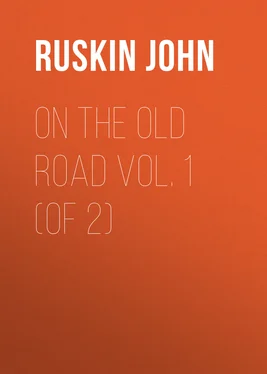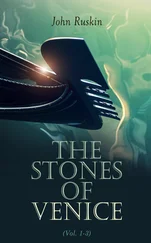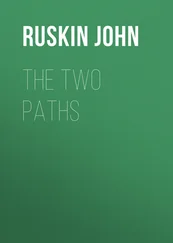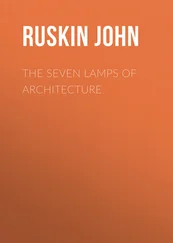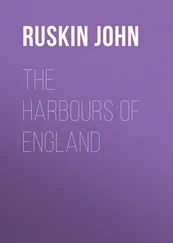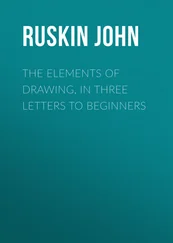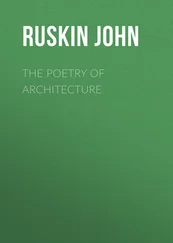John Ruskin - On the Old Road Vol. 1 (of 2)
Здесь есть возможность читать онлайн «John Ruskin - On the Old Road Vol. 1 (of 2)» — ознакомительный отрывок электронной книги совершенно бесплатно, а после прочтения отрывка купить полную версию. В некоторых случаях можно слушать аудио, скачать через торрент в формате fb2 и присутствует краткое содержание. Жанр: foreign_antique, foreign_home, literature_19, visual_arts, на английском языке. Описание произведения, (предисловие) а так же отзывы посетителей доступны на портале библиотеки ЛибКат.
- Название:On the Old Road Vol. 1 (of 2)
- Автор:
- Жанр:
- Год:неизвестен
- ISBN:нет данных
- Рейтинг книги:3 / 5. Голосов: 1
-
Избранное:Добавить в избранное
- Отзывы:
-
Ваша оценка:
- 60
- 1
- 2
- 3
- 4
- 5
On the Old Road Vol. 1 (of 2): краткое содержание, описание и аннотация
Предлагаем к чтению аннотацию, описание, краткое содержание или предисловие (зависит от того, что написал сам автор книги «On the Old Road Vol. 1 (of 2)»). Если вы не нашли необходимую информацию о книге — напишите в комментариях, мы постараемся отыскать её.
On the Old Road Vol. 1 (of 2) — читать онлайн ознакомительный отрывок
Ниже представлен текст книги, разбитый по страницам. Система сохранения места последней прочитанной страницы, позволяет с удобством читать онлайн бесплатно книгу «On the Old Road Vol. 1 (of 2)», без необходимости каждый раз заново искать на чём Вы остановились. Поставьте закладку, и сможете в любой момент перейти на страницу, на которой закончили чтение.
Интервал:
Закладка:
7. I know not whether most in that ambition, or to please my father, I now began seriously to cultivate my skill in expression. I had always an instinct of possessing considerable word-power; and the series of essays written about this time for the Architectural Magazine , under the signature of Kata Phusin, contain sentences nearly as well put together as any I have done since. But without Mr. Harrison's ready praise, and severe punctuation, I should have either tired of my labor, or lost it; as it was, though I shall always think those early years might have been better spent, they had their reward. As soon as I had anything really to say, I was able sufficiently to say it; and under Mr. Harrison's cheerful auspices, and balmy consolations of my father under adverse criticism, the first volume of "Modern Painters" established itself in public opinion, and determined the tenor of my future life.
8. Thus began a friendship, and in no unreal sense, even a family relationship, between Mr. Harrison, my father and mother, and me, in which there was no alloy whatsoever of distrust or displeasure on either side, but which remained faithful and loving, more and more conducive to every sort of happiness among us, to the day of my father's death.
But the joyfulest days of it for us , and chiefly for me, cheered with concurrent sympathy from other friends—of whom only one now is left—were in the triumphal Olympiad of years which followed the publication of the second volume of "Modern Painters," when Turner himself had given to me his thanks, to my father and mother his true friendship, and came always for their honor, to keep my birthday with them; the constant dinner party of the day remaining in its perfect chaplet from 1844 to 1850,—Turner, Mr. Thomas Richmond, Mr. George Richmond, Samuel Prout, and Mr. Harrison.
9. Mr. Harrison, as my literary godfather, who had held me at the Font of the Muses, and was answerable to the company for my moral principles and my syntax, always made "the speech"; my father used most often to answer for me in few words, but with wet eyes: (there was a general understanding that any good or sorrow that might come to me in literary life were infinitely more his) and the two Mr. Richmonds held themselves responsible to him for my at least moderately decent orthodoxy in art, taking in that matter a tenderly inquisitorial function, and warning my father solemnly of two dangerous heresies in the bud, and of things really passing the possibilities of the indulgence of the Church, said against Claude or Michael Angelo. The death of Turner and other things, far more sad than death, clouded those early days, but the memory of them returned again after I had well won my second victory with the "Stones of Venice"; and the two Mr. Richmonds, and Mr. Harrison, and my father, were again happy on my birthday, and so to the end.
10. In a far deeper sense than he himself knew, Mr. Harrison was all this time influencing my thoughts and opinions, by the entire consistency, contentment, and practical sense of his modest life. My father and he were both flawless types of the true London citizen of olden days: incorruptible, proud with sacred and simple pride, happy in their function and position; putting daily their total energy into the detail of their business duties, and finding daily a refined and perfect pleasure in the hearth-side poetry of domestic life. Both of them, in their hearts, as romantic as girls; both of them inflexible as soldier recruits in any matter of probity and honor, in business or out of it; both of them utterly hating radical newspapers, and devoted to the House of Lords; my father only, it seemed to me, slightly failing in his loyalty to the Worshipful the Mayor and Corporation of London. This disrespect for civic dignity was connected in my father with some little gnawing of discomfort—deep down in his heart—in his own position as a merchant, and with timidly indulged hope that his son might one day move in higher spheres; whereas Mr. Harrison was entirely placid and resigned to the will of Providence which had appointed him his desk in the Crown Life Office, never in his most romantic visions projected a marriage for any of his daughters with a British baronet or a German count, and pinned his little vanities prettily and openly on his breast, like a nosegay, when he went out to dinner. Most especially he shone at the Literary Fund, where he was Registrar and had proper official relations, therefore, always with the Chairman, Lord Mahon, or Lord Houghton, or the Bishop of Winchester, or some other magnificent person of that sort, with whom it was Mr. Harrison's supremest felicity to exchange a not unfrequent little joke—like a pinch of snuff—and to indicate for them the shoals to be avoided and the channels to be followed with flowing sail in the speech of the year; after which, if perchance there were any malignant in the company who took objection, suppose, to the claims of the author last relieved, to the charity of the Society, or to any claim founded on the production of a tale for Blackwood's Magazine , and of two sonnets for "Friendship's Offering"; or if perchance there were any festering sharp thorn in Mr. Harrison's side in the shape of some distinguished radical, Sir Charles Dilke, or Mr. Dickens, or anybody who had ever said anything against taxation, or the Post Office, or the Court of Chancery, or the Bench of Bishops,—then would Mr. Harrison, if he had full faith in his Chairman, cunningly arrange with him some delicate little extinctive operation to be performed on that malignant or that radical in the course of the evening, and would relate to us exultingly the next day all the incidents of the power of arms, and vindictively (for him) dwell on the barbed points and double edge of the beautiful episcopalian repartee with which it was terminated.
11. Very seriously, in all such public duties, Mr. Harrison was a person of rarest quality and worth; absolutely disinterested in his zeal, unwearied in exertion, always ready, never tiresome, never absurd; bringing practical sense, kindly discretion, and a most wholesome element of good-humored, but incorruptible honesty, into everything his hand found to do. Everybody respected, and the best men sincerely regarded him, and I think those who knew most of the world were always the first to acknowledge his fine faculty of doing exactly the right thing to exactly the right point—and so pleasantly. In private life, he was to me an object of quite special admiration, in the quantity of pleasure he could take in little things; and he very materially modified many of my gravest conclusions, as to the advantages or mischiefs of modern suburban life. To myself scarcely any dwelling-place and duty in this world would have appeared (until, perhaps, I had tried them) less eligible for a man of sensitive and fanciful mind than the New Road, Camberwell Green, and the monotonous office work in Bridge Street. And to a certain extent, I am still of the same mind as to these matters, and do altogether, and without doubt or hesitation, repudiate the existence of New Road and Camberwell Green in general, no less than the condemnation of intelligent persons to a routine of clerk's work broken only by a three weeks' holiday in the decline of the year. On less lively, fanciful, and amiable persons than my old friend, the New Road and the daily desk do verily exercise a degrading and much to be regretted influence. But Mr. Harrison brought the freshness of pastoral simplicity into the most faded corners of the Green, lightened with his cheerful heart the most leaden hours of the office, and gathered during his three weeks' holiday in the neighborhood, suppose, of Guildford, Gravesend, Broadstairs, or Rustington, more vital recreation and speculative philosophy than another man would have got on the grand tour.
Читать дальшеИнтервал:
Закладка:
Похожие книги на «On the Old Road Vol. 1 (of 2)»
Представляем Вашему вниманию похожие книги на «On the Old Road Vol. 1 (of 2)» списком для выбора. Мы отобрали схожую по названию и смыслу литературу в надежде предоставить читателям больше вариантов отыскать новые, интересные, ещё непрочитанные произведения.
Обсуждение, отзывы о книге «On the Old Road Vol. 1 (of 2)» и просто собственные мнения читателей. Оставьте ваши комментарии, напишите, что Вы думаете о произведении, его смысле или главных героях. Укажите что конкретно понравилось, а что нет, и почему Вы так считаете.
